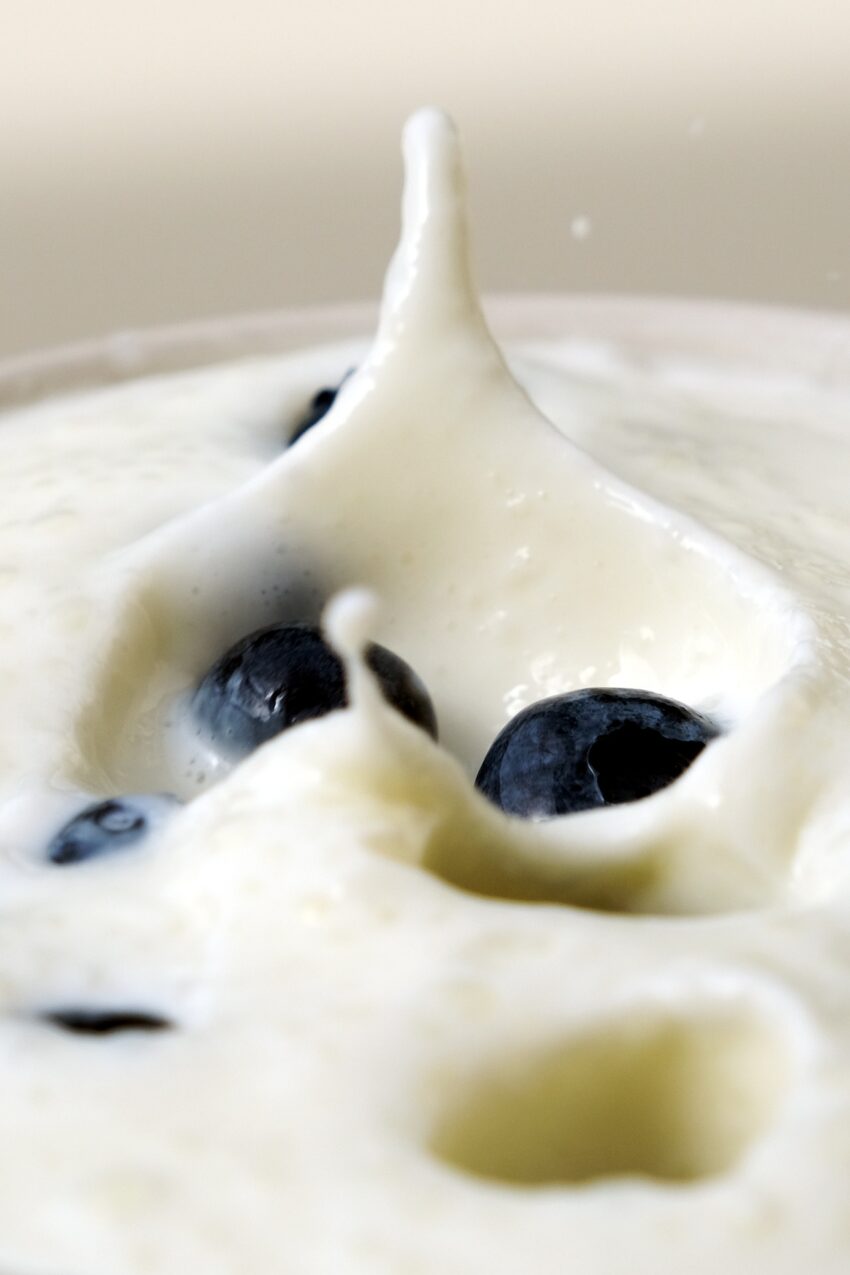Unlocking the Surprising Health Benefits of Kefir

Kefir is an ancient fermented drink made from cow, goat, or sheep’s milk and has long been praised for its health benefits. In this article, we’ll explore the nutritional value of kefir, the health benefits of kefir, the risks and dangers of kefir, and whether kefir helps with weight loss. We’ll also discuss the effects of kefir on gut health and liver damage, as well as its potential impact on blood sugar and immunity. Finally, we’ll cover the different types of kefir and how to make it at home.
What is Kefir?
Kefir is a fermented dairy product made from cow, goat, or sheep’s milk, which has been around for centuries. It is traditionally made by adding kefir grains, which are actually colonies of bacteria and yeast that feed off the lactose in the milk. The grains are then strained out, leaving behind a thick, tangy, and tart beverage that has a slightly sour taste.
As a probiotic food, meaning it contains beneficial bacteria and yeast. This makes it a great choice for those who are looking to increase their intake of beneficial bacteria. It’s also a great source of protein, calcium, and other essential vitamins and minerals.
In recent years, kefir has become increasingly popular as a health food and many people are turning to it as a healthier alternative to dairy milk.
Nutritional Value of Kefir
Kefir is an excellent source of probiotics, protein, and calcium. It is also a good source of vitamins and minerals, including Vitamin B12, riboflavin, Vitamin A, Vitamin D, and magnesium.
In terms of calories, one cup of kefir contains about 150 calories. It also contains 12 grams of carbohydrates and 8 grams of protein.
Kefir is also low in fat, with only 2.5 grams in a one-cup serving. It also contains very little sugar, with only 4 grams per serving.
Health Benefits of Kefir
Kefir has been linked to several health benefits. Studies have shown that it can help to improve digestion, boost immunity, and reduce inflammation.
It may also help to reduce the risk of certain diseases, such as cancer and heart disease. It has also been linked to improved cognitive function, better bone health, and better skin health.
It is also a good source of probiotics, which are beneficial bacteria that can help to promote a healthy gut and improve digestion.
Risks and Dangers of Kefir
Although kefir is generally considered to be safe, there are some risks and dangers associated with it. It is important to note that kefir is a dairy product, so those who are lactose intolerant should avoid it.
Kefir can also contain high levels of sugar, so it is important to read the labels and watch your intake. Too much sugar can lead to an increased risk of obesity, diabetes, and other chronic health conditions.
In addition, those who are pregnant or breastfeeding should avoid drinking kefir as it can contain high levels of yeast and bacteria.
Does Kefir Help with Weight Loss?
Although kefir is low in calories and fat, there is no scientific evidence to suggest that it can help with weight loss. It may, however, help to curb cravings and reduce appetite, which can be beneficial for weight loss.
Kefir is also a good source of protein, which can help to keep you feeling fuller for longer. This may help to reduce snacking and overeating.
Is Kefir Good for Your Gut and Digestive Health?
Kefir is a probiotic food, which means that it contains beneficial bacteria and yeast. These can help to promote a healthy gut and improve digestion.
The probiotics in kefir can help to break down food and absorb nutrients more effectively, as well as reduce symptoms of digestive disorders such as irritable bowel syndrome and constipation.
It is also a good source of prebiotics, which can help to feed the beneficial bacteria in the gut and promote a healthy balance.
Kefir and Liver Damage
Studies have shown that drinking kefir can help to reduce levels of inflammation in the liver and protect it from damage.
It is also a good source of antioxidants, which can help to protect the liver from free radical damage.
Kefir and Blood Sugar
Kefir has been linked to improved blood sugar control. Studies have shown that drinking kefir can help to reduce levels of fasting blood sugar and improve insulin sensitivity.
It is also a good source of probiotics, which can help to improve gut health and reduce inflammation. This can help to reduce levels of inflammation, which in turn can help to reduce blood sugar levels.
Kefir and Immunity
Kefir has been linked to improved immunity. Studies have shown that drinking kefir can help to reduce levels of inflammation and improve immune function.
It is also a good source of probiotics, which can help to promote a healthy balance of bacteria in the gut and boost immunity.
Different Types of Kefir
There are many different types of kefir available on the market today. The most common types are cow, goat, and sheep’s milk kefir, as well as coconut, almond, and soy milk kefir.
Kefir is also available in a variety of flavors, from plain and unsweetened to sweetened and flavored. You can also find kefir in a variety of forms, such as drinkable kefir, kefir yogurt, and kefir ice cream.
Does Kefir Help on sleeping
There are already tons of evidence that kefir is very helpful in improving sleep. The probiotics is helpful in improving sleep, as they may help to reduce inflammation and improve the functioning of the gut-brain axis, which is the communication network between the gut and the brain. However, more research is needed to fully understand the relationship between probiotics and sleep, and it is not clear whether kefir is more effective than other probiotic sources in improving sleep. If you are interested in trying kefir to help with sleep, it is important to speak with a healthcare professional before adding it to your diet.
Dr. Eric Berg also did a video on YouTube to explain more details about the relationship between kefir and sleep.
How to Make Kefir at Home
Making kefir at home is easy and only requires a few simple ingredients. All you need is milk, kefir grains, and a container.
First, add the milk to the container and then add the kefir grains. Seal the container and let it sit at room temperature for 24-48 hours. The kefir grains will feed off the lactose in the milk and ferment the milk into a thick, tangy, and tart beverage.
Once the fermentation process is complete, strain the kefir grains out and enjoy your homemade kefir.
Conclusion
Kefir is an ancient fermented drink with numerous health benefits. It is a probiotic food, meaning it contains beneficial bacteria and yeast, as well as essential vitamins and minerals. Kefir is low in calories and fat and is a good source of protein, calcium, and other essential vitamins and minerals.
Kefir has been linked to several health benefits, including improved digestion, boosted immunity, reduced inflammation, improved cognitive function, better bone health, and better skin health. It is also a good source of probiotics and can help to reduce levels of liver damage and improve blood sugar control.
Kefir is available in a variety of forms and flavors and can be easily made at home with just a few simple ingredients.
Overall, kefir is an excellent choice for those who are looking to boost their health and improve their well-being.
An extra note though, even though Kefir has tons of health benefits, it is always important to speak with a healthcare professional before adding any new food or supplement to your diet, especially if you have a pre-existing health condition or are taking any medications. They can help you to determine whether kefir is safe and appropriate for you, based on your individual circumstances.



Leave a Reply